Q & A with Beth Lane, Director of "UnBroken"
JWA talks to Beth Lane, director of the documentary UnBroken. In the film, Lane tells the remarkable story of how the seven Weber siblings—her own mother among them—evaded capture and ultimately escaped Nazi Germany as children. The film has its Netflix premiere on Yom Shoah, which falls on April 23 this year.
JWA: How much did you know about your family's story when you were growing up?
Beth Lane: You know, not much at all. My mom had so few memories [because she was so young when the war started]. I didn't really learn more of the breadth and scope of everything until 1996, when my mother hosted the 50th anniversary of their immigration from Germany to America.
And when that reunion happened, my Uncle Alfons wrote this forty-page document for the entire family. He titled it "A Brief History of the Weber Siblings." It took me many, many years to really absorb it and make space for it, for my heart to understand who they were and what they endured.
JWA: You knew from your mother that she'd been adopted when they arrived in the US, after which she was basically cut off from her other siblings for decades. When you were a kid, your mother said that you would never meet her biological siblings. I was curious—what did it feel like to hear that and to know that there was this whole other side of the family that was kind of lost to you?
BL: I think as a kid when you're told no, you want it more. It was something that kind of hung out in the back of my psyche for decades. When people ask you, Who do you wanna meet in history? Who do you want to have dinner with? And my answer was always Lina, mom's birth mother [who was murdered at Auschwitz].
JWA: The theme of brokenness is central to the film. Can you talk a bit about the different ways that being broken or unbroken relate to your family's story?
BL: This family's story, I think, is unique because it has a happy ending and—at least for those who made it out—they made new lives. But what do you do with tragedy and how do you transcend it? Their ability to transcend the atrocity that afflicted their family, I think, is something that we can all learn from. And so this idea of being broken is just not what Weber siblings would subscribe to. They wouldn't let the brokenness take them down.
And that's why I love the title UnBroken, because it's easy to think that a family like this would be torn apart and broken, shattered into pieces, but everything that they did in their lives moving forward was to make sure that they weren't that.
JWA: There are so many details that are remarkable about your family's story. But was there any part of the story that surprised you?
BL: Sure. There were two details in particular that just kind of took the wind out of me. One was actually going to the farmland [where the siblings were hidden by a German farmer] and just seeing this place was so incredibly personal.
I think just knowing that there were seven of them sleeping together in a room the size of a king-size bed. You know, how persecuted they were, how fearful they were, lice-ridden, starving. You talk about it figuratively, and then when you're actually there and it's now this beautiful orchard, and to think that something so horrible could have been there…But at the same time, it protected them.
And then the other thing that I think really blew me away was whenever I would uncover an original source document [about my family]. I was just, like, gobsmacked by it. It just felt like gifts were being dropped into my lap. And I think that these things showed up because they wanted to be found.
JWA: A question that you posed early in the film was, "What enabled my family to defy the odds when so many others couldn't?" I was wondering if, after making this film, you feel like you have any more of an answer to that question?
BL: What a beautiful question. I don't know. If I say it's because of their bravery and resilience and moxie, I don't think that's a fair answer, because there were so many families who were murdered who had bravery and resilience and moxie. So, I don't know that I'm any closer to answering that question. But I think if we aperture out with the universe and really kind of look down upon this moment in time and understand why things happen and why they don't, there's a universal plan that I have no control over.
There's this beautiful line in the musical Hell's Kitchen on Broadway right now, and I've kind of appropriated it for myself. "Your ancestors have requested your presence." And I feel that very strongly. I feel that my ancestors have requested my presence to be the voice for their story, to thank the upstanders along the way, who enabled their survival. We need upstanders today, and we're living in a strange world right now that is celebrating the opposite of being an upstander. If my mom's story and her siblings' story can help remind people that we're actually here for each other and not just for ourselves, then I hope that's what people are reminded of.
JWA: That relates to my last question, which is what you hope viewers take away from the film—especially watching this movie now, in 2025, at the moment we're at in the world and in our country.
BL: We had our world premiere on October 8, 2023, the day after the worst atrocity committed against the Jewish people since the Holocaust. The timing of that is just staggering to me. And yet my film is not a political statement, it's not a religious statement. It's a reminder to be human.
If we're going to take the time to come to the movies, then let's take a moment to just open up our hearts and receive what's being given to us by these creative, strong, extraordinary seven children. I'm just so proud to have known them. And more lucky and proud to have been raised by one of them.
You can learn more about the film, including upcoming screenings, here.

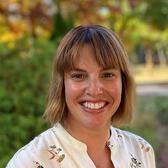
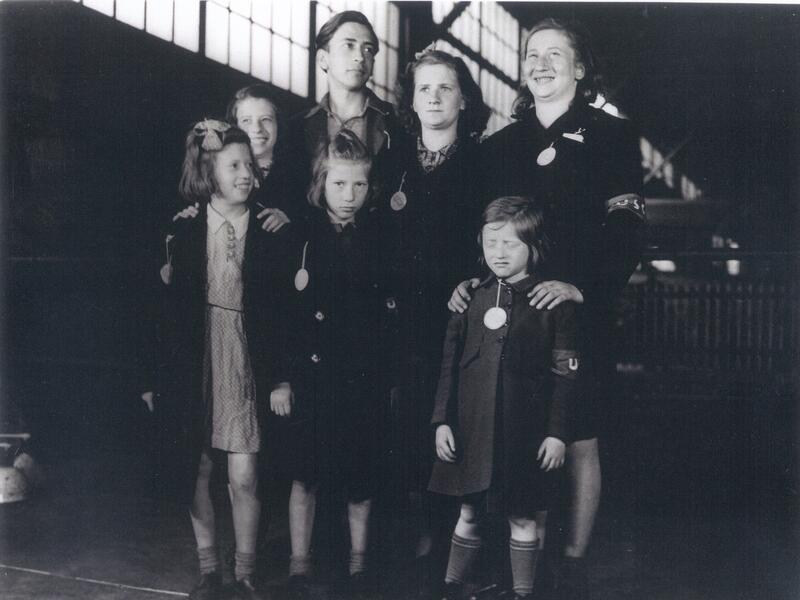
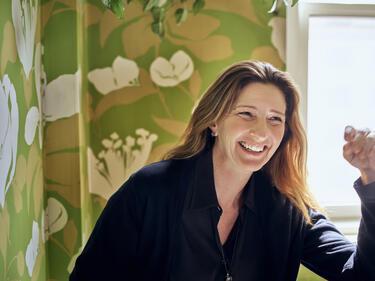
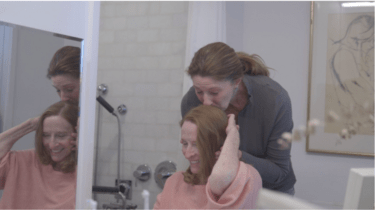


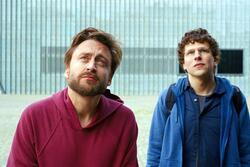


My Grandfather Morton Spiegel looks so much like pic of the Spiegel in Documentary grandpa had 2 brothers Alex ,& ?? Immigrated from Budapest in 1930s? Maybe a relative grandma was Pauline Lena? Most all family gone now imm 75 Sidney's my Dad Seymour middle name
my dad, My middle name Myra for uncle Myron dad's younger brother died age24?
We have crossed paths.
As I watched this amazing story of survival, I was completely taken by surprise to see that the film made mention and included images of my wonderful uncle David Eisenberg who was pivotal in helping Ruth and her siblings find refuge in the United States through the Joint Distribution program. I am so honored and proud to have my uncle's efforts recognized in your film-thank you.
Edward Leida
What am incredible story. Thank you for sharing it with us. The huge chasm that exists between what life was like for the in the 1930's and 1940's in Germany vs now in the United States is staggering alone. I'm sure there are deep wounds but each of them seemed so happy and well adjusted all these years later. I'm so sorry they were all separated here in the states but God has a way of performing miracles time and again. The way the family has expanded is remarkable. What a testament to what extending decency kindness and love to others including strangers haha profound ripple effect we may never know. But to live as God commands us... to Love God and Love People and let God work out the rest. May God bless your family for generations to come.
This film meant so much to my husband and me. His family was Jewish and lived in Poland. His grandfather had the foresight to get his immediate family out in the early 1900s - that's why my husband exists. The rest of the family was probably murdered in Brest (now part of Belarus). We are going to Poland nine days now to visit our son and daughter-in-law, who live in Warsaw. Touring Auschwitz will mean more to us, knowing that it's where Lina was killed. Stories like "UnBroken" are so important for the younger generation to hear, so they can get a faint understanding of what happened.
I just finished watching un broken. I believe this is the most profound story I have ever EVER been privileged to witness. I want to hug everyone of the brothers and sisters. One can only dream of having the courage and resilience of the Weber family. Gosh, 72 And more to come. Thank you for allowing me into your lives.
With respect and love, Donna